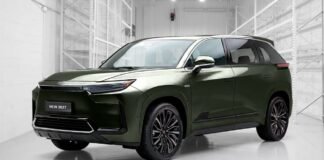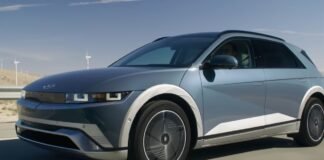The buzz around Hyundai’s lineup continues to grow, with the 2025 Hyundai Bayon Hybrid capturing headlines as speculation intensifies over its anticipated features, pricing, and release date. This compact crossover, already known for its practicality and affordability, is rumored to be taking a significant leap forward by introducing a high-performing hybrid version. With Hyundai’s track record of innovation, eco-conscious drivers and SUV enthusiasts alike are eagerly awaiting what promises to be a game-changer in the hybrid segment.
2025 Hyundai Bayon Hybrid Specifications
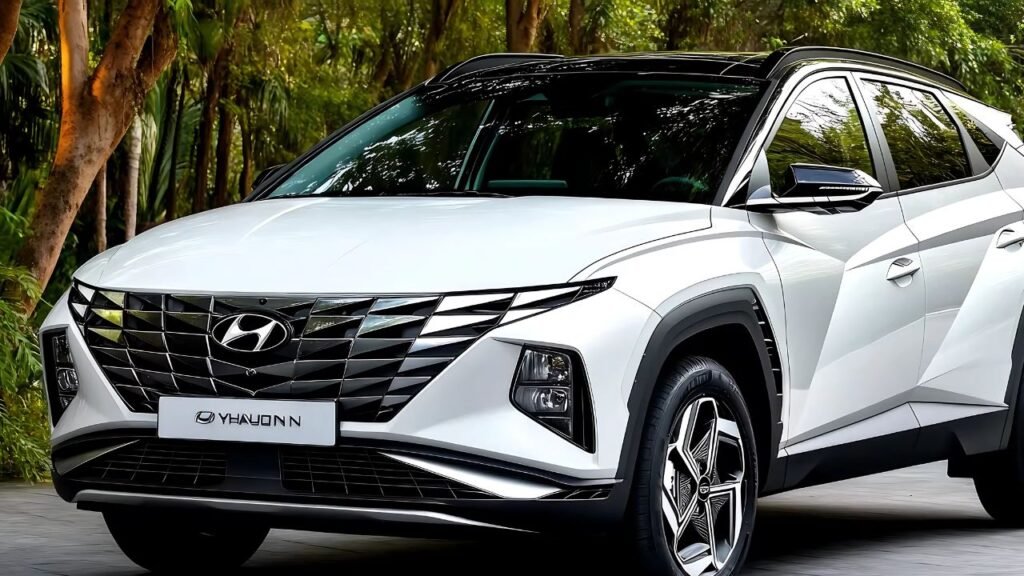
| Category | Details |
|---|---|
| Engine | 1.0-liter T-GDi petrol engine with 48V mild-hybrid system |
| Power Options | 100 PS and 120 PS variants |
| Transmission | 6-speed intelligent manual transmission (iMT) or 7-speed dual-clutch automatic (DCT) |
| Drivetrain | Front-wheel drive (FWD) |
| Performance | 0-100 km/h in ~11.3 seconds (100 PS variant), top speed: ~179 km/h |
| Platform | Hyundai K2 platform |
| Exterior Features | Narrow DRLs, wide front grille, arrow-shaped taillights |
| Safety Features | Hyundai SmartSense: Lane Keep Assist, Autonomous Emergency Braking, Driver Attention Alert |
| Optional Features | Blind Spot Collision Warning, Lane Follow Assist |
| Interior Tech | 10.25-inch digital instrument cluster, 8-inch touchscreen with Apple CarPlay/Android Auto |
| Audio System | BOSE premium sound system available on higher trims |
| Target Market | Urban drivers focused on low emissions and efficiency |
Smartstream Technology: A Fusion of Power and Efficiency
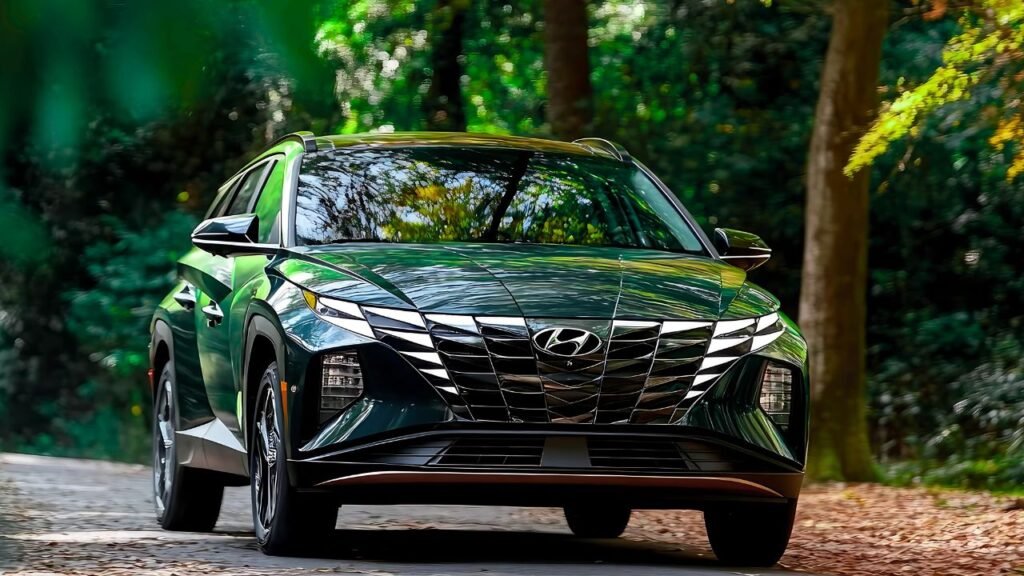
At the core of the rumored 2025 Hyundai Bayon Hybrid is a refined version of Hyundai’s Smartstream hybrid technology. Industry insiders suggest the vehicle may be powered by a 1.6-liter gasoline engine paired with an electric motor.
This hybrid system could produce up to 140 horsepower, offering a seamless blend of fuel efficiency and performance. The setup is anticipated to excel in both urban commutes and long-distance travel, potentially setting the Bayon Hybrid apart in the increasingly competitive hybrid SUV market.
- 0-60 mph: The Bayon’s 1.0-liter T-GDi mild-hybrid engines have been clocked to reach 0-60 mph in approximately 10.4–11.7 seconds, depending on the engine power (100 PS or 120 PS) and transmission (manual or automatic). The newer hybrid version might improve slightly due to enhanced efficiency but is likely to remain within this range.
- 0-100 km/h: Similarly, the Bayon reaches 0-100 km/h in about 10.4 seconds for the 120 PS version. The 100 PS variant requires slightly longer, around 10.7–11.7 seconds, depending on the configuration.
- Top Speed: The previous models achieve top speeds of 183–185 km/h (approximately 114–115 mph). This metric is expected to remain consistent for the 2025 hybrid version.
Futuristic Design Enhancements
Hyundai appears poised to elevate the Bayon’s design to align with its modern, eco-friendly ethos. Spy shots hint at significant exterior upgrades, including:
- Slimmer, more angular LED lighting for a sleek appearance.
- A revamped grille that emphasizes aerodynamic efficiency.
- Streamlined body contours and other tweaks to enhance fuel economy.
These changes aim to give the Bayon Hybrid a more futuristic aesthetic, appealing to a broader audience while boosting performance metrics.
2025 Hyundai Bayon Exterior Dimensions & Cargo Space
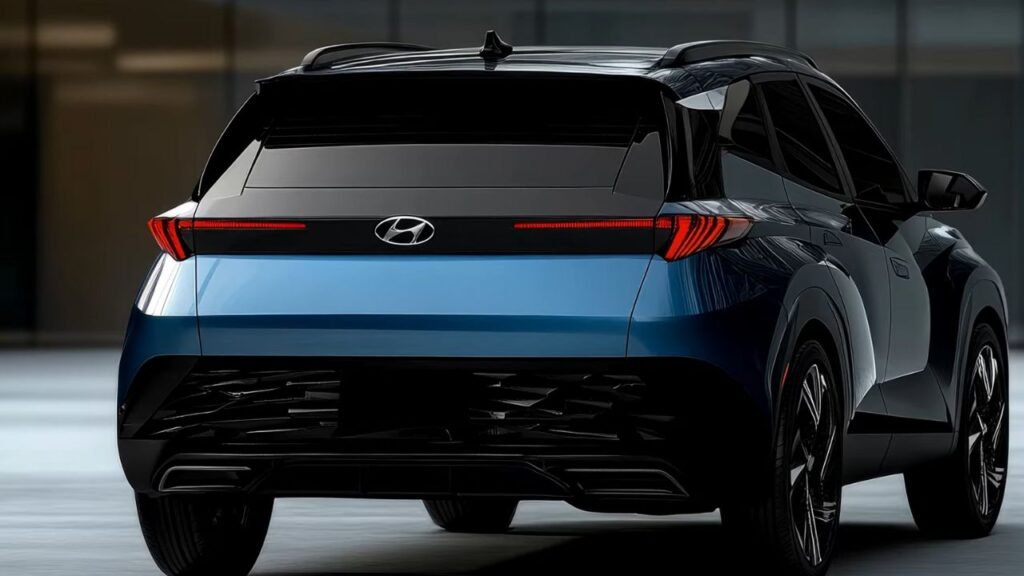
2025 Hyundai Bayon Hybrid is a compact SUV with practical dimensions and cargo space. Its exterior dimensions are approximately 4,180 mm in length, 1,775 mm in width, and 1,500 mm in height, with a wheelbase of 2,580 mm.
The Bayon’s cargo capacity is competitive for its class, offering between 321 to 411 liters of boot space with the rear seats up, depending on configuration. Folding down the rear seats expands the cargo space to a maximum of 1,115 to 1,205 liters. Additionally, an adjustable boot floor enhances flexibility, making it easier to load and unload items.
2025 Bayon Hybrid Interior Innovations
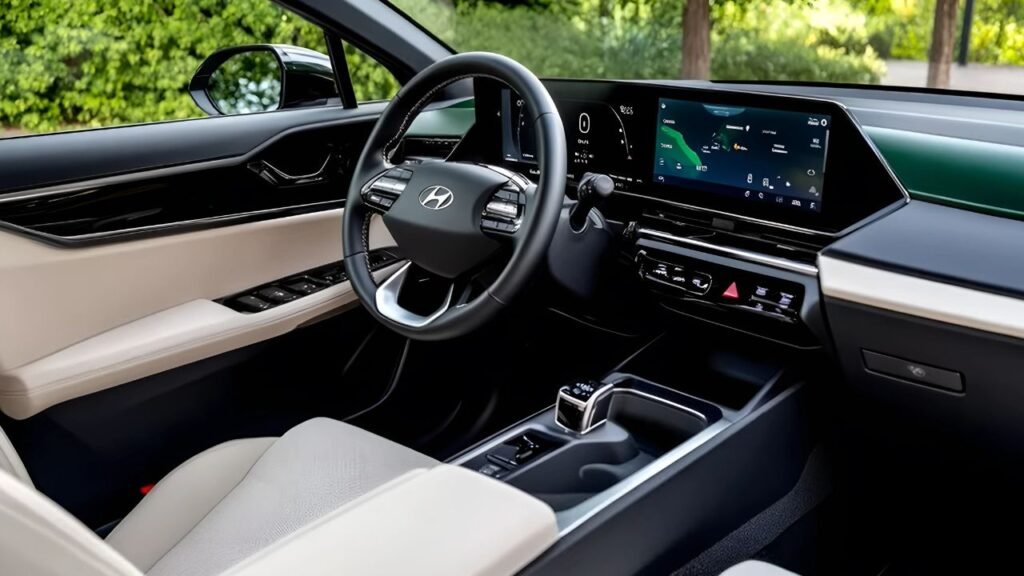
On the inside, the 2025 Bayon Hybrid is expected to receive substantial upgrades that prioritize comfort and technology. Possible enhancements include:
- A larger, more intuitive touchscreen infotainment system.
- Advanced Driver Assistance Systems (ADAS), such as lane-keeping assist and adaptive cruise control.
- Premium upholstery options for a sophisticated cabin feel.
These improvements could position the Bayon Hybrid as a leader in its class, delivering a premium experience at a competitive price point.
2025 Hyundai Bayon Pricing and Release Date
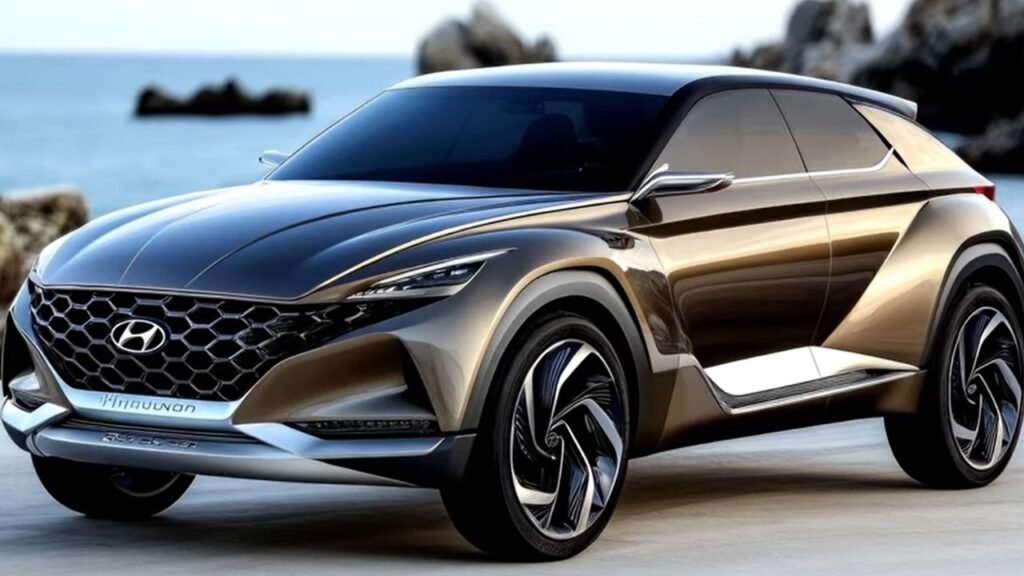
Affordability has always been a hallmark of the Hyundai Bayon, and the hybrid version is no exception. Experts predict a starting price of approximately €23,000, making it one of the most budget-friendly hybrid SUVs on the market. Hyundai’s ability to deliver exceptional value without compromising on quality or style could further solidify its appeal among cost-conscious, eco-friendly buyers.
While Hyundai remains tight-lipped about the exact release date, many speculate an official reveal in early 2024, with sales commencing later that year. This timeline would position the Bayon Hybrid to compete directly with rivals such as the Toyota Yaris Cross Hybrid and other compact hybrid SUVs.
Fuel Efficiency
2025 Hyundai Bayon Hybrid is expected to feature a 1.0-liter T-GDi engine with a 48V mild hybrid system, producing around 100 PS (74 kW) and offering a torque range of 171-200 Nm. This setup aims to deliver a balance of efficiency and performance, tailored for urban and suburban driving.
While official fuel efficiency figures for the hybrid variant are yet to be disclosed, similar setups in Hyundai’s lineup suggest it could achieve around 50-55 mpg (4.5-5.0 L/100 km) under optimal conditions.
The Competitive Landscape 2025 Hyundai Bayon Hybrid
The 2025 Hyundai Bayon Hybrid enters a fiercely competitive segment dominated by established players. However, its combination of modern design, advanced hybrid technology, and attractive pricing could give it a significant edge. With a focus on practicality and eco-efficiency, Hyundai aims to attract a wide range of buyers, from urban commuters to families seeking versatile transportation.
2025 Hyundai Bayon Hybrid is positioned as a compact and efficient crossover, competing in a highly contested market segment. Its key competitors include:
- Ford Puma: Known for its sporty handling and practicality, the Puma offers a mild hybrid option and emphasizes dynamic performance. Power outputs range from 125 to 155 PS, and it provides a competitive mix of economy and utility.
- Toyota C-HR: A bold competitor with hybrid technology, the C-HR combines striking design with efficient powertrains. It emphasizes fuel economy and is equipped with Toyota’s advanced hybrid system.
- Nissan Juke: This quirky crossover offers turbocharged petrol engines and a focus on customizable styling. It emphasizes urban practicality and technology like ProPILOT driver-assistance features.
- Kia Stonic: Sharing a platform with the Bayon, the Stonic emphasizes a sporty aesthetic and offers a mild hybrid option similar to Hyundai’s. It balances affordability with technology.
- Volkswagen T-Cross: Known for its build quality and practicality, the T-Cross offers a variety of petrol engines and advanced safety systems. It caters to those looking for premium touches in a compact SUV.

